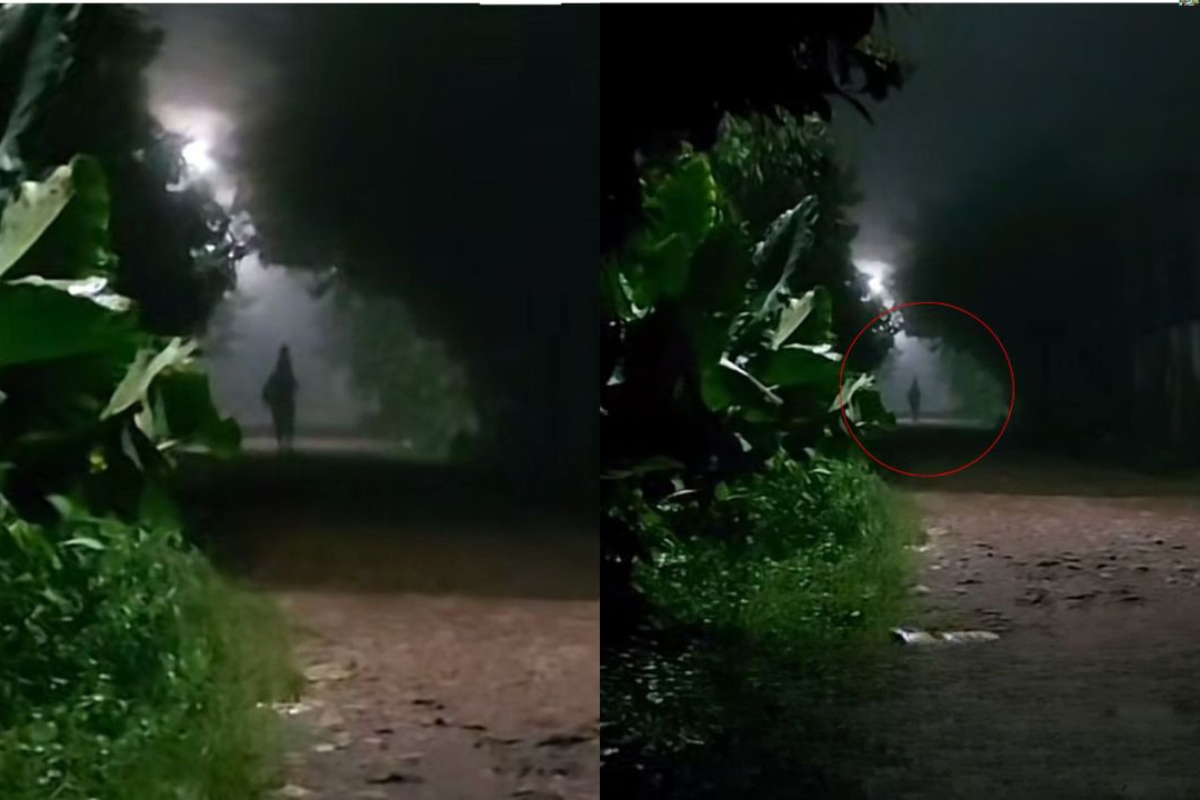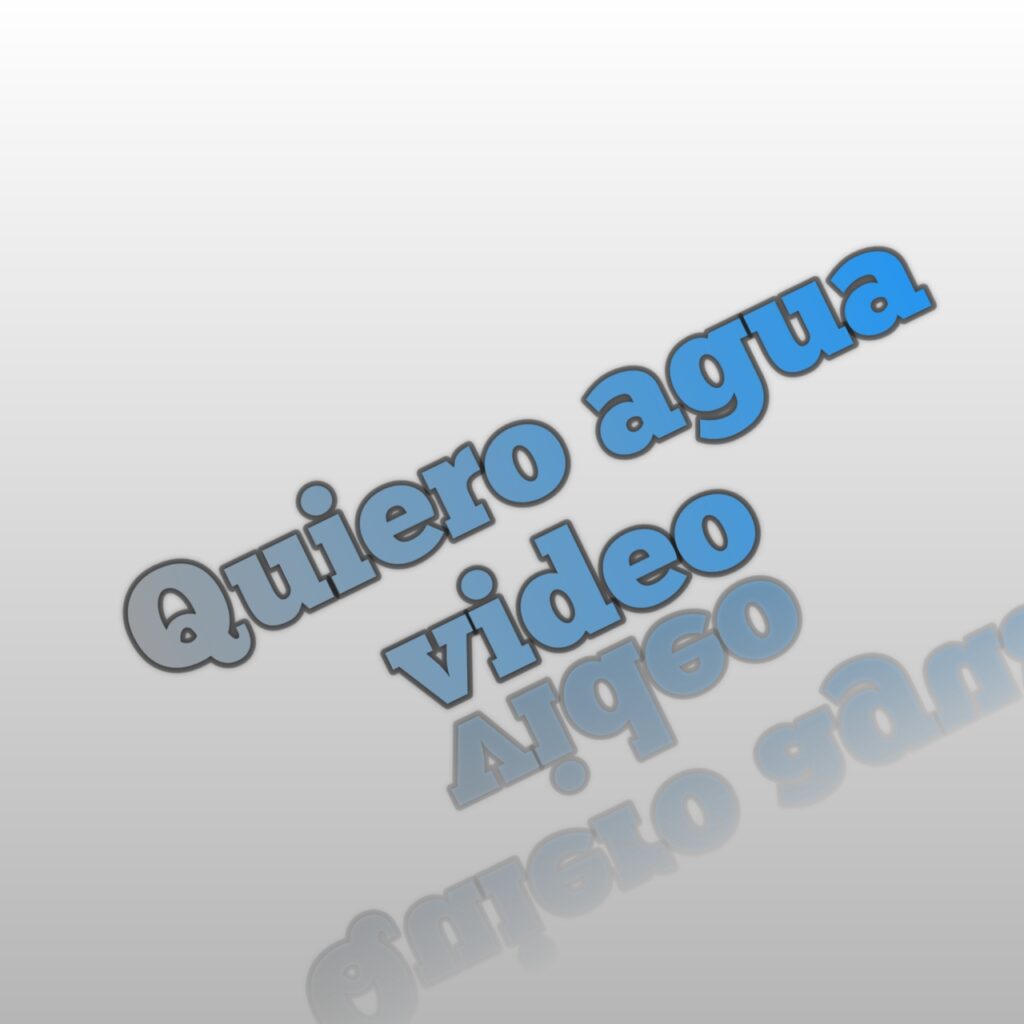Have you ever come across a phrase that just sparks your curiosity, making you wonder about its true roots and meaning? That, it seems, is exactly the feeling many people get when they encounter "quiero agua原版." It's a combination that, you know, really makes you pause and think, "What's the big idea here?"
This phrase, with its mix of Spanish and a distinct East Asian character set, has been popping up in searches, and it's pretty clear people are looking for something specific. We see the Spanish part, "quiero agua," which means "I want water," and then there's "原版." That last bit, well, it typically points to an "original version" or an "original edition." So, you might ask, why would someone be searching for the "original version" of something as simple as wanting water? It's a rather interesting question, isn't it?
Today, we're going to take a closer look at "quiero agua原版" to help clear things up. We'll explore what "quiero" actually means, what "agua" brings to the table, and why that "原版" part is so important to people. It's about getting a better handle on this specific search, and honestly, understanding what makes folks look for the very first instance of a common phrase. We'll try to get to the bottom of it all, more or less.
- %D8%B3%D9%83%D8%B3%D9%8A
- Is Pam Bondi Married To Greg Henderson
- Ximena Saenz Leak
- Linda Fiorentino
- Teresa Fidalgo
Table of Contents
- What Does "Quiero Agua" Mean?
- The Mystery of "原版": Original Version
- Why Are People Searching for "Quiero Agua原版"?
- How to Find "Original Versions" of Internet Phrases
- Common Questions About "Quiero Agua原版"
- Wrapping Things Up
What Does "Quiero Agua" Mean?
Let's begin with the basics, shall we? The phrase "quiero agua" is quite straightforward in Spanish. It's a simple, everyday request or statement. When you break it down, it tells a clear story, and that is what we'll talk about first, basically.
The Meaning of "Quiero"
The word "quiero" comes from the Spanish verb "querer." This verb, it's pretty versatile, you know. It can mean a few different things depending on how you use it. For instance, our text tells us that "quiero" can translate to "I want," "I like," or even "I love." So, it's not just about desires, but also about affection or preferences, too it's almost like a Swiss Army knife of words.
In the present tense, as our information points out, "querer" is often used to talk about current wishes. If you say "Quiero una respuesta concreta, por favor," you're asking for "A clear reply, if you please." This shows its use for wanting something specific, which is pretty common, as a matter of fact.
It also expresses affection towards someone, which is another side of it. So, if you say "quiero" to a person, you might be expressing a fondness or a deep caring, which, you know, adds another layer to the word. It's really quite flexible.
The text we have also points out that there are "12 authoritative translations of quiero in English with example sentences, conjugations and audio pronunciations." This tells us it's a very important word in Spanish, and people want to get it right. It's clear that many folks are trying to get a good handle on this particular word, and that's understandable, obviously.
Furthermore, the text mentions that finding translations for "quiero" is "fast and easy to use," and there are "Over 100,000 English translations of Spanish words and phrases." This just goes to show how much information is out there for Spanish learners and curious minds. You can find all sorts of meanings, like "I want," "I like," "I love," and many others, which is very helpful, you know.
A phrase like "Un consumidor, que no quiere manejar eso, no va a tener que hacerlo y puede seguir teniendo el contacto personal con el..." also uses "quiero." Here, it's about a consumer who "doesn't want to handle that." This really highlights the "want" or "desire" aspect in a practical situation, too. It’s a pretty common way people use the word, actually.
Understanding "Agua"
"Agua" is a simpler word, honestly. It means "water" in Spanish. There's not much mystery to it. It's one of those basic words you learn early on when picking up a new language. So, when you put "quiero" and "agua" together, you get "I want water." It's a very straightforward request, and that is what it means, literally.
This combination, "quiero agua," is something you might hear every day in a Spanish-speaking place. It's a fundamental need, after all. So, it's a very common phrase, and people use it all the time, which is pretty obvious, right?
The Mystery of "原版": Original Version
Now, this is where things get really interesting, don't you think? The addition of "原版" (yuánbǎn) changes the whole picture. As we mentioned, "原版" is a term from East Asian languages, meaning "original version" or "original edition." So, it's not just "I want water" anymore; it's "I want water, the original version." This is quite a specific request, isn't it?
Why would someone be looking for the "original version" of "I want water"? This is where the world of internet culture, memes, specific videos, or famous quotes comes into play. It suggests that "quiero agua" might have become something more than just a simple phrase. Perhaps it's part of a popular video, a song lyric, or a memorable moment that went viral. People are, you know, trying to trace it back to its very first appearance.
Think about how many common phrases or sounds have become famous online. Sometimes, a very ordinary phrase, when said in a particular way or in a funny context, can just take off. And when that happens, people often try to find the exact moment or piece of content where it all started. This search for the "原版" is a bit like looking for the very first spark of something that became widely known, which is pretty cool, really.
It's also possible that this search comes from someone learning Spanish who heard "quiero agua" in a specific piece of media and wants to find that exact source again. Or, maybe it's someone who heard the phrase and is trying to figure out if it's part of a larger trend or inside joke. The "原版" part suggests a clear desire to go back to the source, and that's often what people want to do with things they find online, you know.
Why Are People Searching for "Quiero Agua原版"?
The search for "quiero agua原版" tells us a lot about how people interact with language and culture in the digital age. It's not just about understanding words; it's about understanding their context and their journey. People are, like, really trying to get to the bottom of things, you know.
The Cultural Impact of Phrases
Phrases, even simple ones, can gain huge cultural significance. A particular way of saying something, a unique voice, or a memorable situation can turn a common expression into a cultural touchstone. So, it's not just about the words themselves, but the entire package they come in. This is why the "原版" is so important to many people, you know, because it points to that original context.
Consider how many memes start with a simple image or a short sound clip. The original context might be completely ordinary, but once it's shared and re-shared, it takes on a life of its own. People who search for "quiero agua原版" are likely trying to find that initial moment, that first piece of content that made the phrase stand out. It's about connecting with the origin of something that has resonated with others, which is kind of fascinating, isn't it?
This kind of search also shows how language learning can mix with internet culture. Someone learning Spanish might hear "quiero agua" in a very specific video or song and then look for that exact version to help them remember it or to understand its cultural weight. It's a practical way to learn, actually, and it helps you get a real feel for the language, too.
Finding the Source
The desire to find the "original version" often comes from a need for completeness or a wish to share the source with others. If you've heard a phrase and it stuck with you, you might want to show your friends where it came from. This is a very common thing people do online, and it helps spread information and fun content, which is pretty neat, right?
It's also about validating what you've heard. In a world full of remixes and re-edits, finding the "原版" confirms that you're looking at the authentic source. This gives a sense of satisfaction, knowing you've found the true beginning of something. It's like finding the first edition of a beloved book, you know, it just feels right.
How to Find "Original Versions" of Internet Phrases
If you're trying to track down the "original version" of a phrase like "quiero agua原版," there are a few things you can try. It's not always easy, but with a bit of digging, you can often find what you're looking for. You just have to be a little bit patient, that's all.
First, try using search engines with very specific terms. Instead of just "quiero agua原版," you might add words like "meme," "video," "song," "clip," or "viral." This helps narrow down the results to what you're likely looking for. For example, you might search for "quiero agua viral video," or something like that, which can really help, you know.
Second, look at social media platforms. Many trends and "original versions" start on sites like YouTube, TikTok, or Twitter. Searching directly on these platforms using the phrase can often lead you to the source. People often share the original clips there, so it's a good place to start, actually.
Third, check out sites that document internet culture, like Know Your Meme. These sites often have entries for popular phrases, videos, and memes, and they usually include information about the origin and spread of the content. They can be a very helpful resource for finding the "原版," and that is what they are there for, more or less.
Finally, consider asking in online communities dedicated to language learning, internet culture, or specific fandoms. Someone in these groups might already know the answer and can point you directly to the "original version." People in these communities are usually very happy to help, which is pretty cool, right? You can learn more about language trends on our site, and perhaps find related discussions on this page about cultural expressions.
Common Questions About "Quiero Agua原版"
People often have similar questions when they come across a phrase like "quiero agua原版." Let's tackle a few of those, because, you know, it helps to clear things up for everyone.
What does "quiero agua" mean in simple terms?
It simply means "I want water." It's a very direct way to ask for water in Spanish, and that's all there is to it, pretty much.
Why is "原版" added to "quiero agua"?
The "原版" part, which means "original version," suggests that people are looking for the very first instance or specific piece of media where "quiero agua" became notable. It could be a viral video, a song, or a meme that made the phrase stand out. So, it's about finding the source, you know.
Is "quiero agua原版" a meme?
It's possible that the search for "quiero agua原版" is related to a meme or a viral moment. People often look for the "original version" of things that become popular online, so it's a very likely possibility, honestly. You can often find more about internet phenomena by checking sites like Wikipedia's entry on Internet memes, for example.
Wrapping Things Up
So, we've taken a little journey into the phrase "quiero agua原版," and it's been quite interesting, hasn't it? We've talked about how "quiero" is a versatile Spanish word meaning "I want," "I like," or "I love," and how "agua" simply means "water." The real puzzle, it turns out, is that "原版" part, which points to an "original version." This tells us that people are not just looking for a translation; they're looking for the very first moment this phrase gained some sort of special meaning, perhaps in a video or a meme. It's all about finding the roots of things, which is pretty cool, really.
The fact that people are searching for this specific combination shows how language and internet culture often mix in fascinating ways. It highlights our natural curiosity to find the source of things that capture our attention. So, the next time you come across a phrase that makes you wonder, you know, dig a little deeper! You might just uncover a whole story behind it. What other "original versions" are you curious about?
Related Resources:



Detail Author:
- Name : Dr. Hailee Hansen Sr.
- Username : vrunolfsdottir
- Email : evie.mcclure@wolf.com
- Birthdate : 1970-12-17
- Address : 272 Oberbrunner Canyon Apt. 667 East Rossietown, WY 10694
- Phone : (878) 969-7888
- Company : Corkery-Hartmann
- Job : Computer
- Bio : Necessitatibus necessitatibus eveniet voluptatem incidunt placeat dolorum. Reiciendis sapiente dolores sit iure sunt minus.
Socials
instagram:
- url : https://instagram.com/rwalter
- username : rwalter
- bio : Eius magnam vitae molestiae ut qui voluptas voluptatem amet. Maiores id aut eveniet nam amet.
- followers : 3054
- following : 667
twitter:
- url : https://twitter.com/rhiannawalter
- username : rhiannawalter
- bio : Doloribus necessitatibus et dolor nisi architecto. Excepturi beatae sunt est. Cupiditate nobis sunt soluta fuga beatae est repellendus.
- followers : 3774
- following : 2354
tiktok:
- url : https://tiktok.com/@rhianna_walter
- username : rhianna_walter
- bio : Expedita dicta quod quisquam rerum placeat cupiditate optio.
- followers : 1636
- following : 928
linkedin:
- url : https://linkedin.com/in/rwalter
- username : rwalter
- bio : Enim inventore voluptas odio dolores sunt.
- followers : 5791
- following : 2153